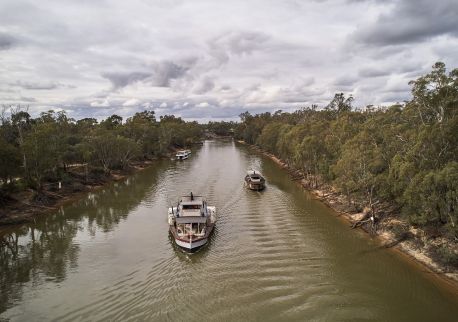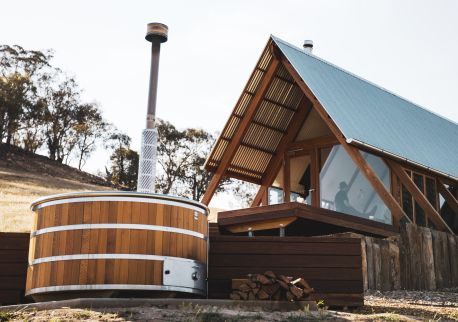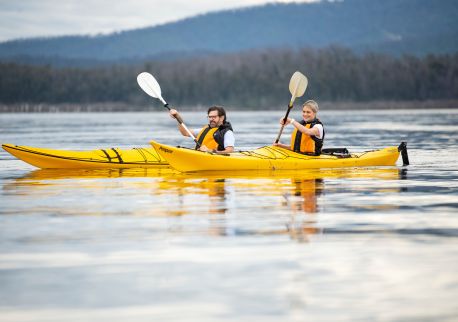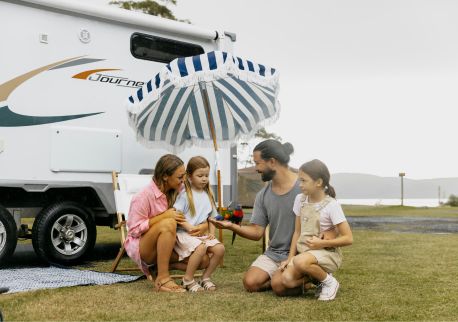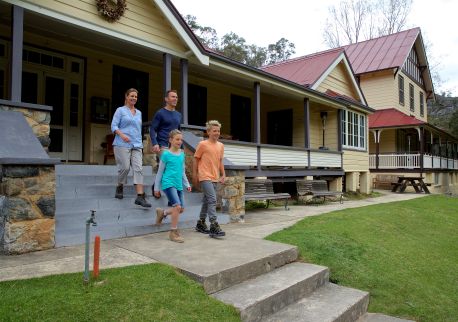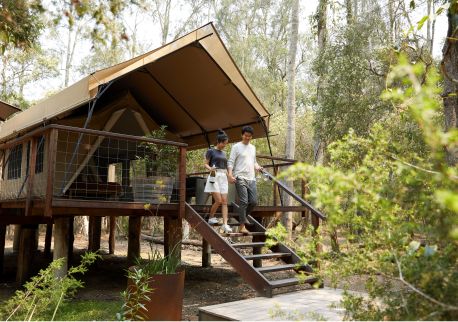Earp Distilling Co.
Highlights
- Stylish, modern distillery with a welcoming local atmosphere
- Creative cocktails & seasonal menus featuring local produce
- Unique spirit experiences like tours, tastings & distilling classes
Overview
The Earp family have been established in Newcastle, NSW, since 1883, and in 2019, the current generation opened the doors of our ultra-modern distillery. Located in the beautiful port-side suburb of Carrington, Earp Distilling Co. offers quality, creativity and new experiences to connoisseurs, the spirit curious and everyone in between.
At the distillery, you'll find a stylish alternative to traditional pubs and bars without losing that intimate local feel. They offer seasonal menus full of the best local produce, a rotating cocktail list featuring their spirits, and a bounty of local beers and wines. The distillery regularly holds ticketed and free events for the public to attend and enjoy.
Want to expand your distillery adventure? Join the team for a spirit Experience! Whether you walk through on a Tour, take a trip with the Tasting Flights, or become a distiller for the day at Spirit School, there are so many ways for you to learn about their passion.
All of its spirits are produced using local and organic ingredients, where possible, in their technology-driven modern stills. These iStills produce spirits with up to 70% more energy efficiency than traditional methods - one part of their journey to create a distillery and spirits synonymous with adventure, sustainability and quality.
Accessibility
Actively welcomes people with access needs.
Advise tour guides of the access needs of guests at the time of booking (includes pick up and drop off requirements)
Ask all visitors if there are any specific needs to be met
Caters for people who are blind or have vision loss
Caters for people who use a wheelchair.
Caters for people with allergies and intolerances.
Caters for people with sufficient mobility to climb a few steps but who would benefit from fixtures to aid balance. (This includes people using walking frames and mobility aids)
Employ people with disability
Have a step free main entrance to the building and/or reception area (includes ramps or slopes with a maximum gradient of 1:14, otherwise are too steep for wheelchairs)
Have a wheelchair accessible toilet / shower and change room
Have accessible seating areas in theatrette
Have an accessible public toilet which is unlocked
Have at least one wheelchair accessible parking space with wheelchair accessible signage clearly displayed (International standards are 3200mm wide x 2500 mm high)
Have doorways which are easy to open and have lever handles (doorways 850mm or wider when open and not heavy)
Have grab rails in the bathroom
Have handrails on all your stairways
Have step free access to restaurant, lounge and bar
Have step free access to the conference or function room
Have step free outdoor pathways (includes picnic areas, barbecues and shelters)
Have wheelchair accessible transport options available in the general vicinity (provide information on name of the operator, phone and website link to individual providers for private vehicles, community transport train, mini vans, hire cars, buses, taxis, ferry, tram, light rail etc in your access statement)
Modify your cooking and cleaning practices to cater for people with food allergies or chemical intolerances (could include menus with meals free from: nuts, dairy, seafood, eggs, gluten etc)
Offer a range of contact methods for receiving complaints
Offer multiple options for booking - web, email, phone
Provide assistance with booking arrangements (includes providing clear itineraries with written instructions on what to do at various destinations)
Provide digital communication materials (hard copy information is also available on line)
Provide information in large print
Provide seating in common areas including reception area
Train your staff in disability awareness
Train your staff to respond to allergic reactions
Use floors/coverings which are slip resistant, firm and smooth
Use non-slip tiles in the bathroom or slip resistant matting
Use Plain English / easy read signage and information (includes menus and emergency information)
Welcomes and assists people who have challenges with learning, communication, understanding and behaviour. (includes people with autism, intellectual disability, Down syndrome, acquired brain injury (ABI), dyslexia and dementia)






